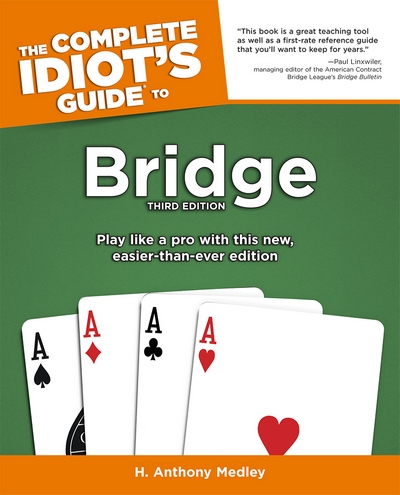| The first and second editions of Complete Idiot's Guide to Bridge by H. Anthony Medley comprised the fastest selling beginning bridge book, going through more than 10 printings. This updated Third Edition includes a detailed Guide to Bids and Responses, along with the most detailed, 12-page Glossary ever published, as well as examples to make learning the game even easier. Click book to order. Available in all bookstores and on Kindle. | ||
|
The Death of Stalin (6/10) by Tony Medley Runtime 107 minutes R If the oft-quoted maxim, “Dying is easy, comedy is hard” is true, then satire and farce are harder. This film, directed by Armando Iannucci and based on two comic books (sometimes ostentatiously called “graphic novels,” apparently because they are longer than normal comic books) by Fabien Nury and Thierry Robin, stands as a stark example of how hard it is. Joseph Stalin died on March 2, 1953, which resulted in a short power struggle as to who would succeed him. This film tries to show the struggle comedically. So actors who have been successful in comedy got the leading roles. Steve Buscemi (Fargo) plays Nikita Khrushchev, Jeffrey Tambor (The Larry Sanders Show) is Georgy Malenkov, Simon Russel Beale (in addition to comedy he has an extensive list of Shakespearean credits) is Lavrentri Beria; Michael Palin (Monty Python) is Vyacheslav Molotov, and so on. The best performance is by Buscemi as the scheming Khrushchev, but Tambor also gives a good performance as a bumbling Malenkov. The big problem is that viewing a murderous monster like Beria comedically is really hard to take. According to Richard Cavendish in an article in “History Today,” Beria was “head of the secret police in Georgia in his twenties, he supervised the ruthless 1930s purges in Georgia and arrived in Moscow in 1938 as deputy to Nikolai Yezhov, ‘the blood-thirsty dwarf’, head of the Soviet secret police. He soon succeeded Yezhov, who was shot on Stalin’s orders, apparently at Beria’s prompting. Beria, who went on to run the Soviet network of slave-labour camps, was notorious for his sadistic enjoyment of torture and his taste for beating and raping women and violating young girls. Bald and bespectacled, by the time of Stalin’s death in 1953 he was one of the most hated men in the country.” Not much to laugh about. Even so, the film fairly accurately reflects what many people believe happened to him, although there are alternate theories. Similarly, six-footer Tambor seems unsuited to play Malenkov, who is described as very short short (not unlike the diminutive Stalin, who was 5-6). Further, Tambor plays him as an inept fool. In fact, Georgy was in charge of Stalin’s infamous purges of many of his close associates in The Kremlin in the mid to late 30s. In his two years as prime minister before losing a power struggle with Khrushchev, he was forthright in his opposition to nuclear weapons, stating that “a nuclear war could lead to global destruction.” He also recommended reorienting the economy of heavy industry to the production of consumer goods. So this is nothing to laugh about. Stalin was a villain who was responsible, along with his cohorts pictured here, for the deaths of an estimated 11 million kulaks (some say a lot more) from 1929-33, killed most of his Kremlin compatriots in the late ‘30s, and imprisoned all of Eastern Europe after WWII. He was hardly the avuncular, laughing man played by Adrian McLoughlin. But for the millions of uninformed people who see this movie, that's the way they will inevitably think of him, as "Uncle Joe." Iannucci shows these guys as being the Russian equivalent of the Keystone Kops, goofballs all. While it’s true that Charlie Chaplin made The Great Dictator in 1940 making fun of Adolph Hitler as Adenoid Hynkel, that was pure fiction and clear satire. Chaplin used a fictional country and fictional names and Hitler was still alive. That's farce. This movie uses a real country and real names and real events and everyone is dead. Nobody took Chaplin seriously, but lots of people will come out of this and think they know what really happened. It’s too bad that this is played for laughs. It would have made a terrific serious movie. There is a lot of speculation that Stalin’s associates poisoned him. Beria, especially, seemed to be in Stalin's cross hairs and had motive. Instead, the movie just accepts the story that Stalin died of a stroke and never raises the possibility that he was assassinated (as he probably assassinated Lenin). And, despite the farcical nature of the film, it does get a lot of things right. As it is, satire or farce, it misses the mark. But if you enjoy light-hearted farce, this could be enjoyable. Someday maybe someone will have the courage to make a film showing these people to be the murderous, heartless brutes that they really were.
|
||
